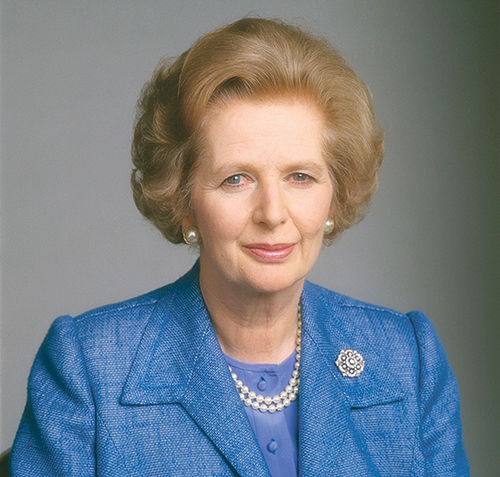Death settles nothing. It turns out the lights on a life, but a putting-to-rest never puts what’s done to rest.
To quote Faulkner: “The past is never dead. It’s not even past.” The vortex of self and society that we call “now” is only the end-state of past actions.
The Lady’s legacy

Death settles nothing.
It turns out the lights on a life, but a putting-to-rest never puts what’s done to rest.
To quote Faulkner: “The past is never dead. It’s not even past.” The vortex of self and society that we call “now” is only the end-state of past actions.
So much depends on whether you choose to bust your ass on a term paper or prematurely crack open a six-pack; whether you ask that girl out for coffee or limp home and spend your Friday evening playing Star Wars: The Old Republic and eating barbecue-flavored Wheat Thins directly from the box; whether your parents invest wisely for your education or take a wild bet on Lehman Brothers.
You can choose your own destiny.
Except when a very powerful person chooses that destiny for you.
Hence the divisive reactions to former British Prime Minister Margaret Thatcher’s death in early April. Here was a woman who grabbed a nation by its balls and steered it down her chosen path. Thatcher had a greater impact on the lives of ordinary Britons than anyone since the Second World War.
Some benefited greatly from her stewardship. Most didn’t.
Thatcher’s passing exposes the deep divisions in contemporary British society. The hero of the modern British political right, her supporters eulogized her as the savior of a nation in deep decline. Her economic reforms are credited with revitalizing the stagnant and noncompetitive British economy. And conservatives attribute the resurrection of pride in the British national brand to Thatcher’s bellicose resolve during the Falklands War.
Conversely, the working classes and the left-wing press greeted her death with morbid celebration. Intellectuals hated her for her provincial tastes and moral absolutism. And across England’s northern industrial heartland, Thatcher is remembered as a right-wing ideologue whose union-busting and industrial privatization wrecked their livelihoods. She cut public spending on social services and education and introduced a regressive poll tax that fell disproportionately on the poor.
Public demonstrators celebrated her death. Public drunkenness ensued in true British fashion. “Ding Dong! The Witch is Dead” climbed to number two on the UK charts, and mope master Morrissey called Thatcher a “terror without an atom of humanity.”
This columnist isn’t normally inclined to look to Morrissey for well-reasoned political analysis. But in this case the guy may have a point.
In point of fact, Thatcher ruined the lives of countless ordinary Britons and erected significant hurdles for future generations. Thatcherite privatization, tax increases and social-service cuts created severe economic hardship during her leadership period. Her government’s precipitous cuts to education and public housing staunched social mobility and increased homelessness. And her apparent indifference to the plight of minority groups has led some to accuse her of racism.
The wealthy gained the most from Thatcher’s policies. Financial deregulation contributed to London’s re-emergence as a global financial center, and lower income taxes increased the concentration of national wealth in the hands of the top earners. Today the United Kingdom has one of the highest rates of income disparity among European Union member states.
And contrary to perception abroad, Thatcher did very little to help women. Though her Soviet-bestowed “Iron Lady” moniker indicated that she could be as fiery a rhetorician and uncompromising a negotiator as any man, Thatcher was no feminist. Her vision included no socially progressive role for women.
If Margaret Thatcher has made any lasting contribution to gender equality, it’s that her uncompromising social and economic policies and verbal combativeness have dispelled the tea-and-scones, domestic angel fallacy of British womanhood.
The equal participation of all does not automatically entail the rising fortunes of all. The life of Margaret Thatcher shows us that a woman’s policies in power can be just as regressive as a man’s.
This columnist thus proposes Lady Thatcher’s honorable induction into the Assholes of Leadership pantheon that includes Julius Caesar, Genghis Khan and Napoleon Bonaparte. Each of these great men balanced great accomplishments on the backs of the weak. Thatcher—who under her prim manners and reddish coif was truly a stampeding Hun—will keep them good company.






